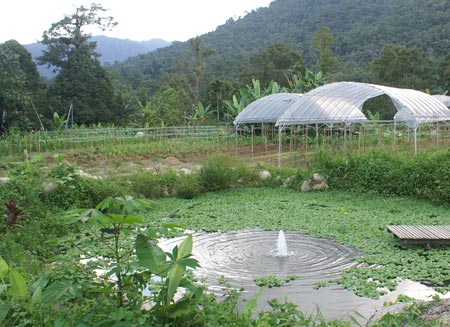What is Organic Farming?
(source: Organic Farming in Malaysia, published by CETDEM)
Organic Farming does not use artificial (synthetic) chemicals like pesticides and fertilizer. It relies on composting, mulching, green manuring, intercropping / mixed cropping, and crop rotation, to build soil fertility, soil and water conservation, as well as biological methods to control weeds and pests.
Organic Farming produces safe and nutritious food as it helps prevent soil pollution by stopping risky chemical reactions in the soil and avoiding produce contamination, as well as soil erosion, by wind and rain.
Organic Farming reduces dependence on non-renewable resources. It recycles by-products from households, agriculture and other human activities e.g. kitchen waste, weeds, grass, tree leaves, livestock manure, rice husks, palm oil residues, etc.
Through the Organic Farming system, we are working in harmony with nature – contributing towards human and environmental health as well as building a more spiritual and ethical human society.
Organic Farming systems emphasize management, biological relationship such as those between pest and predator, and natural processes, such as nitrogen fixation instead of chemically intensive methods. The objective is to sustain and enhance, rather than reduce and simplify, the biological interactions on which production agriculture depends, thereby reducing the harmful off-farm effects of production practice.
View of the Farm in 2007


